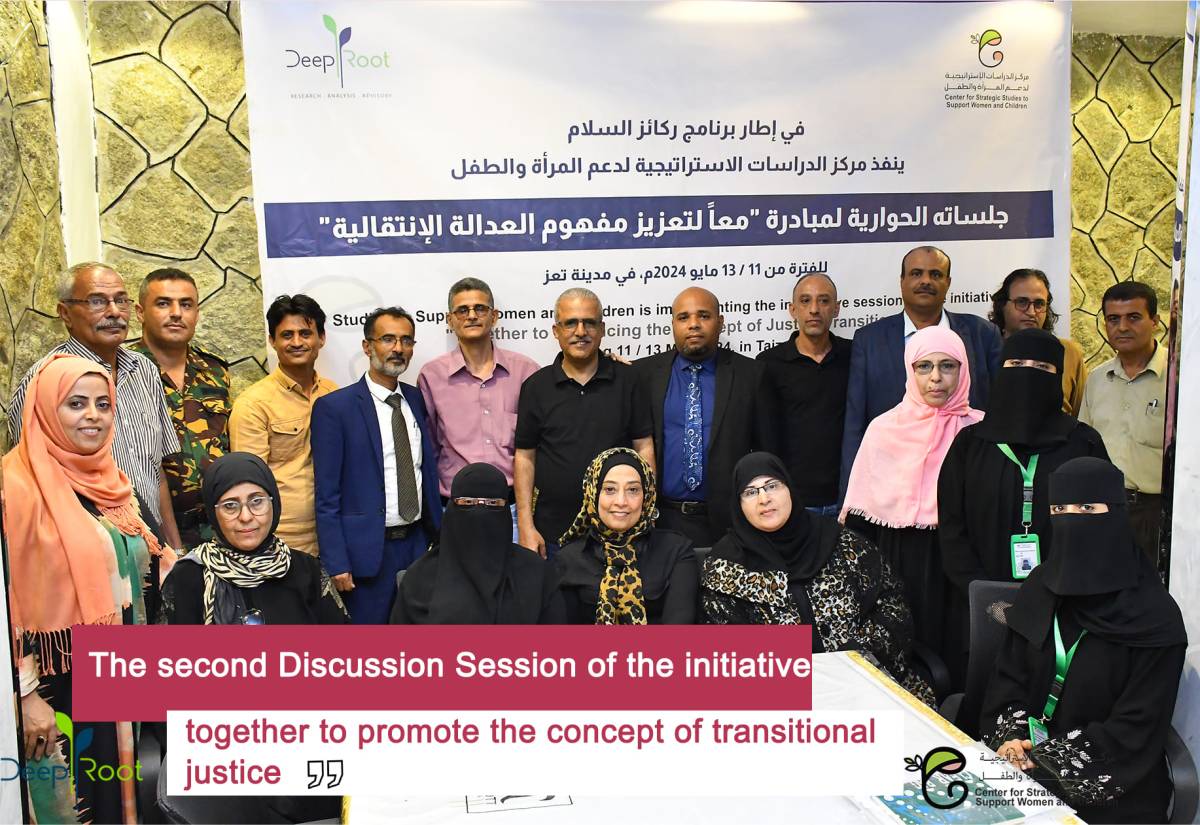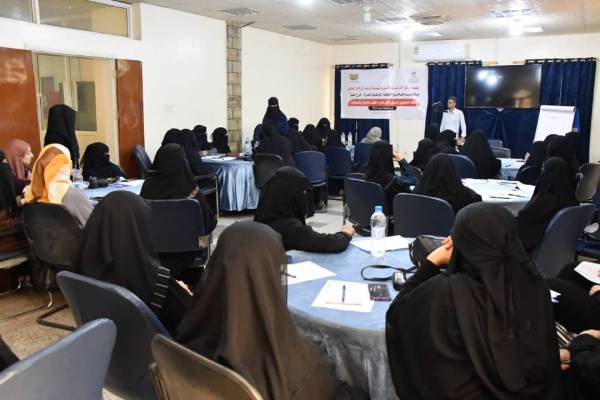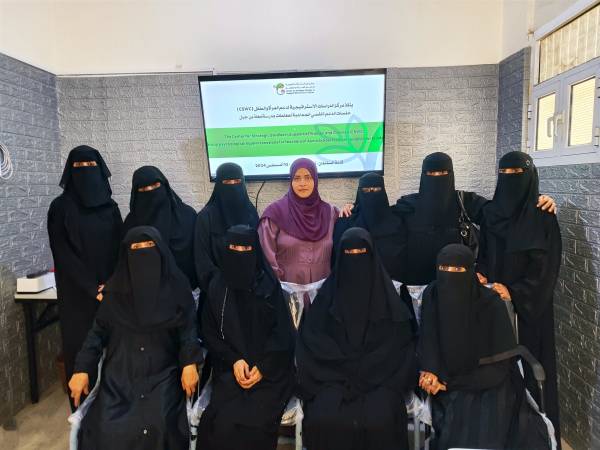Conclusion of Dialogue Sessions in Taiz to Enhance the Concept of Transitional Justice in Yemen
Taiz:
The Center for Strategic Studies to Support Women and Children concluded a series of dialogue sessions in the city of Taiz, as part of the initiative "Together to promote the Concept of Transitional Justice" , which lasted for two days, ending on Monday, May 13, 2024.
The center targeted 37 participants representing official institutions including the judiciary, security administration, Siege affairs office, as well as community initiatives, activists and individuals involved in monitoring and documenting violations, reconciliation and social peace, and local mediation. Additionally, representatives from various political parties and conflict victims from different periods were present.
The sessions, implemented within the framework of the Pillars of Peace program and with funded by DeepRoot Consultancy Foundation, had a 70% youth participation and 60% female participation. The main objectives were to provide participants with initial knowledge about transitional justice, to understand the issues of transitional justice before and after the war, to familiarize them with the map of local mediation efforts in peacebuilding and transitional justice, to identify new issues that have not been addressed in previous efforts, and to build a peace links between initiatives, committees, and entities working in mediation, reconciliation, and peacebuilding within the context of transitional justice.
During the sessions, facilitator Basem Al-Hajj discussed the concept and definitions of transitional justice, its goals, and the difference between it and conventional justice. He provided a historical overview of the emergence and development of the concept in different countries based on diverse experiences and contexts. He also explored the multiple and interconnected components and mechanisms of transitional justice, as well as the conditions, requirements, and factors for its success and its importance for Yemen.
Basem Al-Hajj stated that the concept of transitional justice is relatively new, originating in Argentina and Chile in the 1980s. He highlighted that there have been many international experiences, some successful and others not, emphasizing the urgent need to adopt a direction towards transitional justice within the desired political settlement in Yemen.
The facilitator also discussed the efforts of local mediation and peacebuilding in Taiz, their different levels and forms, and how they align with the concepts and foundations of transitional justice, and how they enhance them. The sessions also addressed transitional justice issues at both the national and Taiz-specific levels during previous historical periods, in addition to new issues arising from the 2014 war.
Dr. Dr-Anjila Sultan la Al-Maamari, the Executive Founder of the Center for Strategic Studies to Support Women and Children, stated that the participants demonstrated an understanding of the importance of building a Yemeni-specific transitional justice, as well as the importance of making concessions in the criminal aspect of transitional justice in favor of its components, which include truth-telling, accountability, reparations, memory preservation, institutional reform, and prevention of recurrence.
Al-Maamari emphasized that the initiative's activities will not stop there but will focus on creating an environment for sustainable peace, where Yemenis are able to build their state institutionally, ensuring its prosperity and overcoming the continuous cycles of conflict that hinder any genuine development.


